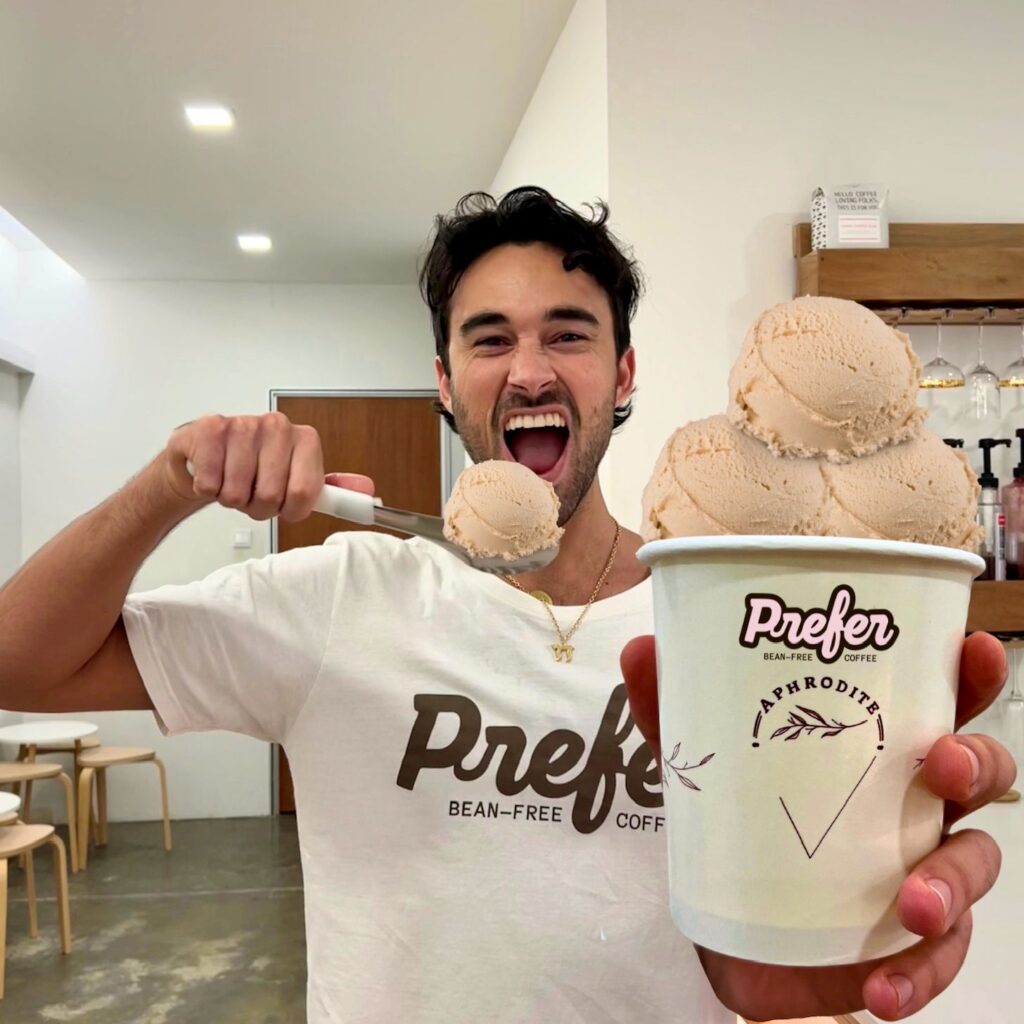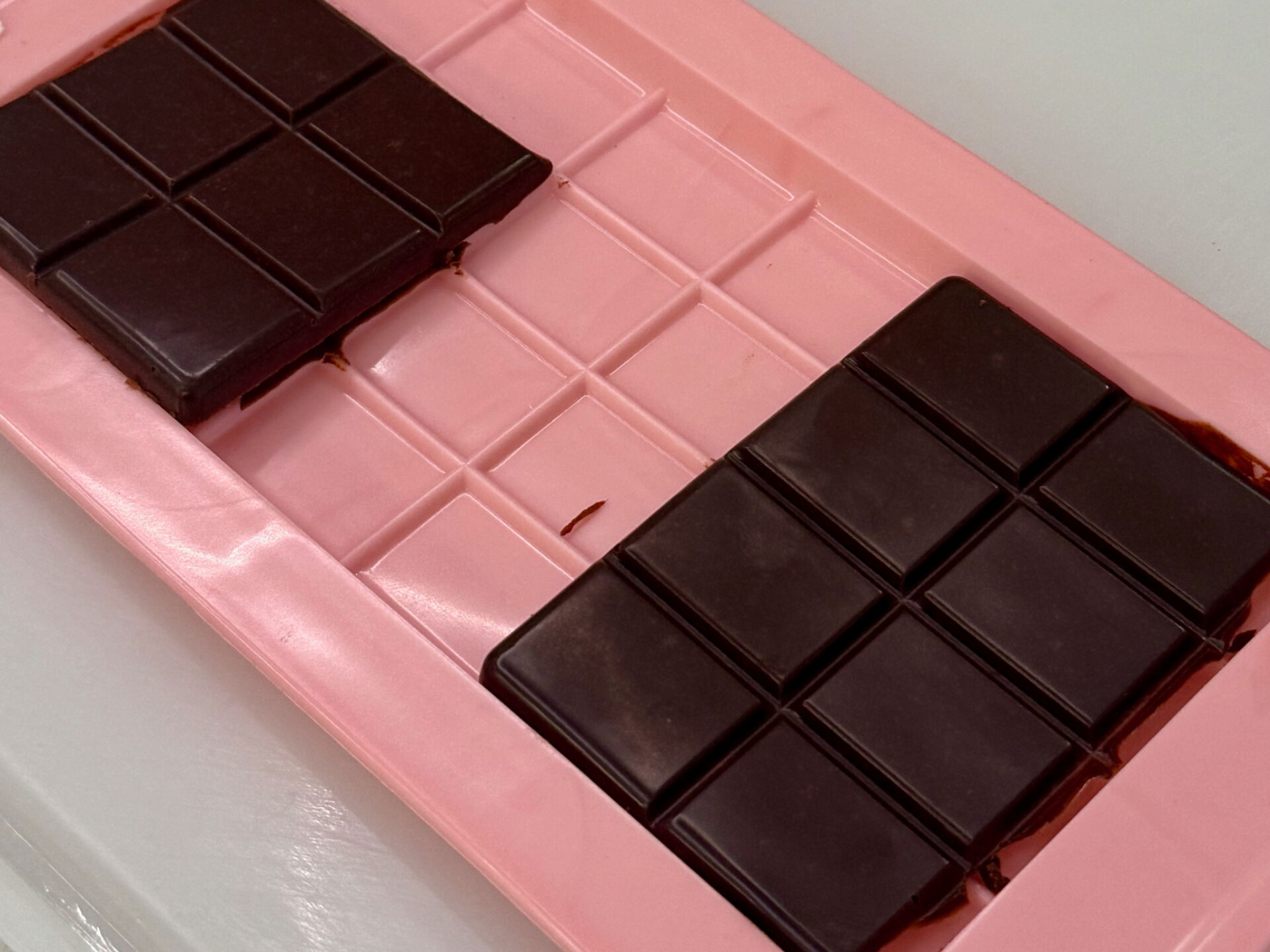After Coffee, This Singapore Startup Is Making A Green Alternative to Another Bean: Cocoa
4 Mins Read
Singaporean food tech startup Prefer is adding cocoa-free chocolate to its beanless portfolio in an effort to fight the economic and planetary costs of the sweet delight.
Would you have a mocha made without the coffee and the chocolate if it tastes the same anyway?
Prefer, which is making planet-friendly alternatives to carbon-heavy food commodities, is betting on it. The Singapore-based startup made splashes last year with the market launch of its beanless coffee, which utilises waste bread, soy milk pulp, spent brewer’s grain, and fermentation to offer an alternative to your morning latte that won’t hurt the planet.
Coffee is one of the most carbon-emissive food items – in fact, its GHG impact is surpassed only by red meat, and dark chocolate.
There is already a glut of companies working on novel meats, whether plant-based, fermentation-derived or cultivated. But now, more and more startups are cropping up to tackle the cocoa industry.
Prefer has joined that list, with a cocoa-free chocolate prototype now in the works. While most details are under wraps here, co-founder and CEO Jake Berber says the firm is venturing into the cocoa world for the same reason that propelled its beanless coffee innovation.
“The price of cocoa is skyrocketing – we believe our solution solves a globally impactful problem,” he tells Green Queen.
Prefer gears up for B2B alt-chocolate launch

Berber is right. Cocoa prices shot up by three- to fourfold last year, reaching all-time highs. In New York, cocoa futures peaked at $12,931 per tonne in mid-December, following weather-induced low supplies for the fourth successive season in West Africa, which produces the majority of the world’s cocoa.
In fact, these hikes meant cocoa surpassed every other commodity in the value chain in 2024 (followed by coffee) – and prices are likely to stay high this year. Global cocoa stocks have dropped to their lowest levels in a decade, with Ivory Coast and Ghana – the two largest producers – the biggest victims of extreme weather, crop diseases, and reduced plantations in favour of illegal gold mining.
It makes more future-friendly alternatives paramount. Startups around the world are making use of agricultural sidestreams and more sustainable ingredients to make chocolate alternatives, or culturing cocoa cells in bioreactors to make bioidentical products like cocoa powder and butter.
Prefer’s chocolate belongs to the cocoa-free category, joining the likes of Voyage Foods, Planet A Foods, and Foreverland, to name a few. Berber isn’t disclosing how it’s made just yet, but he says it uses the same infrastructure and technology as its bean-free coffee – this uses byproducts from local companies, which are fed to microbes and converted into the same key aroma volatiles as coffee. The resulting products include ground coffee for espresso machines, cold brew concentrates, and ready-to-drink beverages.
“That’s always been the goal: to create a platform flavours technology that creates food and beverages under threat,” says Berber.
He reveals that the cocoa-free chocolate will be launched as a B2B ingredient for other food producers. “But we’ll be having some B2C pop-ups this year in Singapore,” he adds.
New facility and products in store for 2025

Climate change is already destroying the cocoa industry, acutely impacting those who depend on it for their livelihoods. If things continue to go the way they are, only two-thirds of cocoa trees will be left by 2050.
The industry is itself a major contributor to the crisis – a bar of chocolate requires 1,700 litres of water, and the need for land has meant that 94% and 80% of deforestation in Ghana and Ivory Coast, respectively, is ascribed to cocoa. The practice has led to the loss of over 85% of the latter’s forest cover since 1960.
While Prefer hasn’t conducted an impact assessment of its still-in-development alternative, Berber says other companies “should give a good estimate”. Take Voyage Foods, the fledgling sector’s most well-funded company, for example – an independent life-cycle assessment has found that its non-dairy milk chocolate produces 84% fewer emissions, while needing 99% less water.
So the climate argument is quite clear. But will consumers bite into cocoa-free chocolate? Berber believes that flavour and price are the two factors that will make or break these products: “For our target market – the masses – research shows that a delicious product at an affordable price point is most important.”
This is also what he believes separates Prefer’s chocolate from its competitors. “While we’re still prototyping, we’re optimising for taste and price. By leveraging our unique fermentation technology, the goal is to provide a product significantly below price parity while maintaining our partner chocolate company’s flavours.”
The R&D for the chocolate is being conducted at its lab in Nurasa’s Food Tech Innovation Centre, the same place it makes and packages its beanless coffee. The startup raised $2M in February last year to fund a larger-scale production plant, progress on which is “going according to plan”, according to Berber. “We’re planning to have our first commercial batch out of this facility in Q1,” he says.
Speaking of coffee, Prefer’s version has been “flying”, according to its CEO. “We’ve been sold out since we launched [last year] and have closed over 50 foodservice and HORECA customers,” he reveals.
Berber adds: “This quarter, we’ll launch a canned iced oat latte that will allow us to scale our B2B2C business via foodservice and HORECA.”



